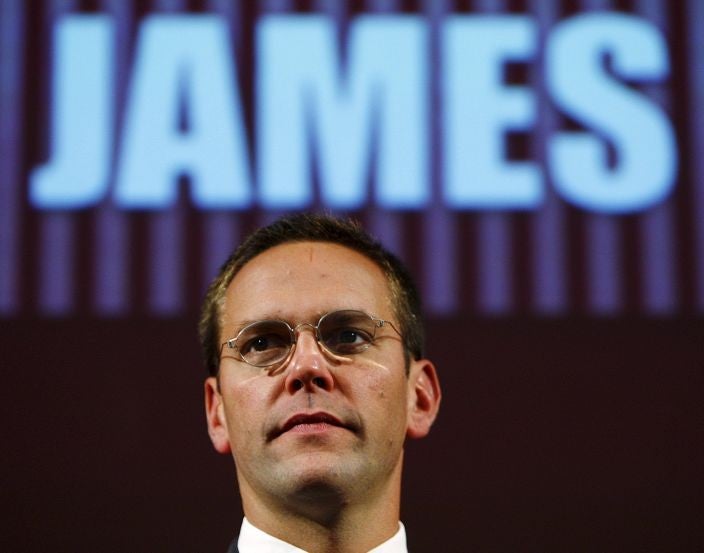James Murdoch should step aside as chairman of Sky while Fox is bidding. The fact that he doesn't have to shows the system is flawed
UK companies like Sky are free to flout corporate governance rules under "comply or explain" which is how this situation was allowed to arise

James Murdoch's return as chairman of Sky this year immediately sparked speculation that a bid to buy out the company’s independent shareholders would swiftly follow.
As we now know, it was well founded. It just took a little longer than most people expected. His father Rupert Murdoch was content to play the long game, and my how that has paid off.
The UK’s impending exit from the EU may be skewering its economy (just wait for the stats in the New Year), but it’s worked out wonderfully well for the Murdochs. The fall in the value of the pound makes Sky, shares in which have been falling all year, as cheap as chips to its US parent. Or French Fries, if you prefer.
Of course, in theory that means that James Murdoch, as the chairman of Sky and the chief executive of Fox, could have been negotiating with his Dad (the executive chairman of Fox) or even with himself.
James, how much d’you think your Sky shareholders would take if I made an offer?
I dunno James, let me have a think. OK, how about eleven quid a share?
Oh no, that won’t do at all. We can only pay ten fifty.
OK, how about we meet in the middle at £10.75?
Deal! Now if we can just clear the thing with those pesky regulators, the politicians will surely toe the line. The City will moan a bit, but it'll come around.
I know, I know, it didn’t go anything like that in reality. The interests of Sky's independent shareholders were represented by the company’s independent directors, led by deputy chairman Martin Gilbert, when Fox tabled its proposal.
But at least some independent shareholders are indeed moaning, and with good reason. They think that it undervalues the company. Standard Life’s Thomas Moore, also told the BBC that he thinks “there’s quite heavy representation of people who are connected with Rupert Murdoch, not just James Murdoch” on the board.
It’s worth pointing out here that the shares were higher than Fox's propsed take out price when James Murdoch made his return to the company. They were at £10.75 as recently as February. Today that number represents 36 per cent premium to the company’s closing price on December 8, before Fox made its interest known.
Now there are good reasons for that share price decline. Sky is highly leveraged as a company. It is facing competitive pressures that didn’t exist the last time Rupert Murdoch took at a tilt at bringing it fully into the Fox fold. Netflix and Amazon Prime didn't exist then.
There are also concerns about whether Premiership football, which has been central to the company’s success, is reaching saturation point and about how well Sky will be able to monetise its rights as a result. It paid an enormous amount of money to secure them.
However, none of that changes the fact that the shares’ fall has been very much in James Murdoch’s interests as chief executive of Fox, not to mention in Rupert Murdoch’s interests. So, as chairman of Sky, James Murdoch has a clear conflict of interests. He should, at the very least, step aside until the proposal that is on the table has either become a formal bid, or not.
Of course he won’t. And nor does he have to under the UK corporate governance framework, which allows you to flout the “rules” with impunity as long as you explain why you’re doing so.
Business news: In pictures
Show all 13If you think that’s bizarre. If you think it could be compared to allowing people to take whatever flatscreen they fancy from John Lewis without paying as long as they explain why they shouldn’t have to, well you wouldn’t be alone.
And yet “comply or explain” is repeatedly held up to be a strength of the UK system. By the way, a majority of independent Sky shareholders voted against James Murdoch's appointment as chairman at the last AGM. But that didn't change anything, either.
Regardless of what happens to Sky, there is surely an argument for the rules that allowed this to happen to be revisited. Flaws in UK corporate governance have already been brutally exposed by the goings on at Sports Direct. This only enhances the case its model is in urgent need of reform.
Subscribe to Independent Premium to bookmark this article
Want to bookmark your favourite articles and stories to read or reference later? Start your Independent Premium subscription today.

Join our commenting forum
Join thought-provoking conversations, follow other Independent readers and see their replies